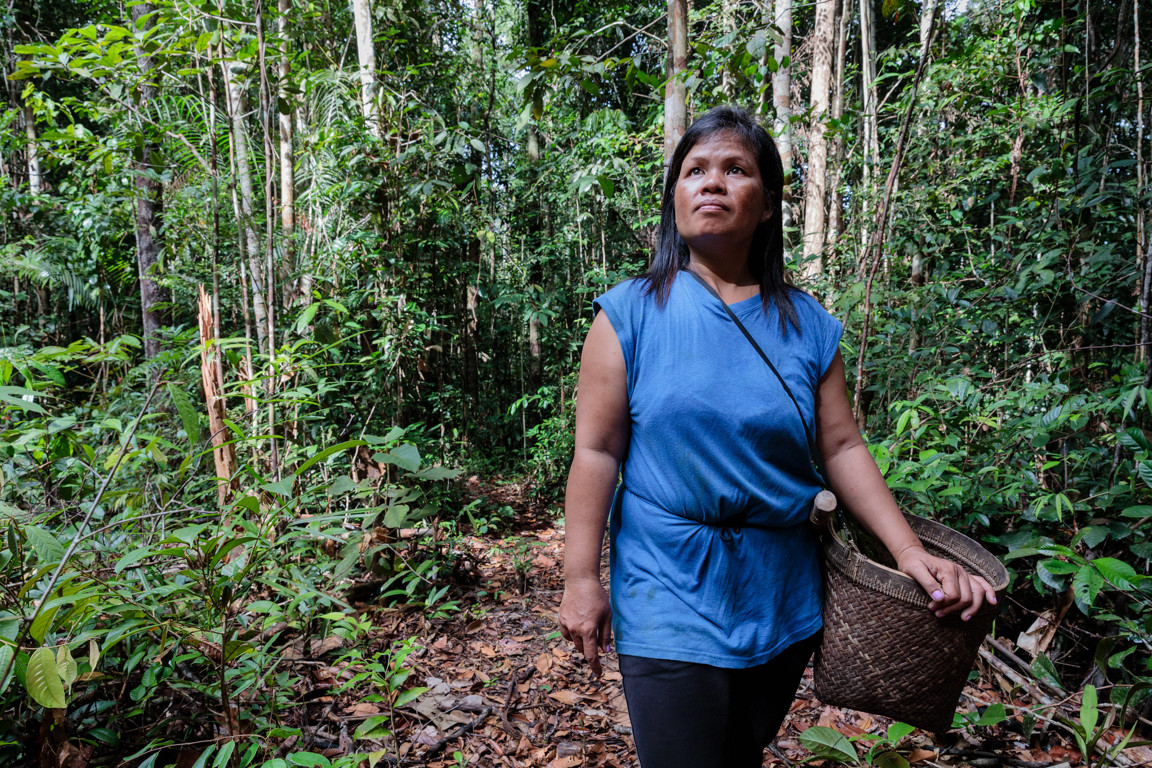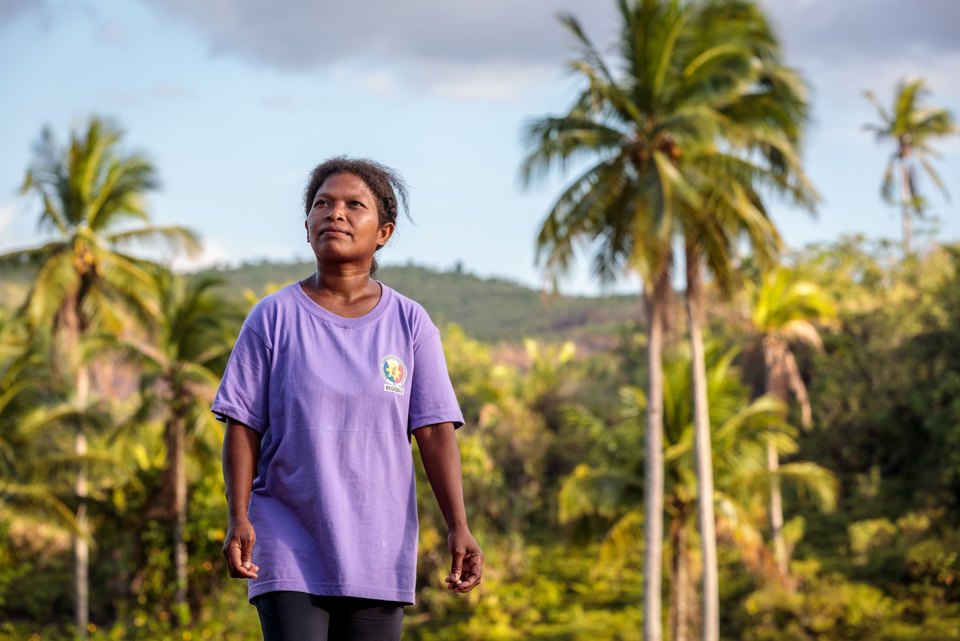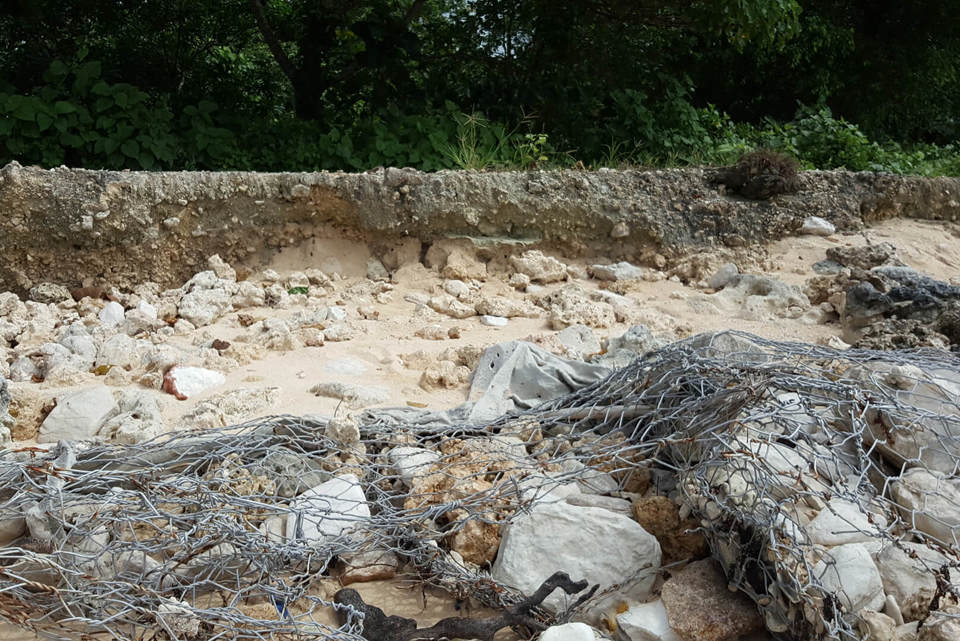Global Issues
Promoting Climate Justice

Tatik Eryati (38) walks through part of her community's preserved forest to collect vegetables and traditional medicines in Tembak hamlet, Sintang District, Indonesia, 2018. Caritas Australia partner Karina and Caritas Sintang run the Strengthening Resilient Communities program to strengthen the capacity of the Dayak community through eco-tourism and income generating activities to enable them to conserve their customary forest and safeguard access to land and land rights. Photo credit: Richard Wainwright/Caritas Australia.
“Climate change is happening now and to all of us. No country or community is immune. And, as is always the case, the poor and vulnerable are the first to suffer and the worst hit.”
Climate impacts can exacerbate inequitable social conditions
Low-income communities, indigenous people, people with disabilities, older people, women and children – are often more susceptible to the risks posed by climate impacts, including cyclones, floods and earthquakes. These communities may have fewer existing resources to help them to deal with these impacts, such as limited access to food and water.
A 2020 World Bank paper estimates that between 32 to 132 million additional people will be pushed into extreme poverty by 2030 due to climate change.

Photo credit: Richard Wainwright/Caritas Australia.
Existing social conditions that put vulnerable communities at increased risk of climate-related shocks include:
- Poor housing or makeshift shelters which are unable to withstand floods, typhoons, or rising sea levels
- Limited resources to prepare for future disasters or to afford items like drought-resilient seedlings
- Prolonged drought and flooding may also affect food supply or distribution, making it harder for people to access affordable, nutritious food
- Low incomes, limited resources and a poor local economy mean that rebuilding and recovery in the wake of natural disasters is challenging and may take years
- Increasing natural disasters and environmental changes can also affect the health of populations, including the spread of water and airborne diseases and limit access to medicine and health care.

What are we doing to promote climate justice?
We are working with our local partner organisations on the ground around the world to develop programs to assist vulnerable communities who are struggling to adapt to the effects of environmental changes and natural disasters.
One such program is the Sustainable Livelihoods for Indigenous People in Dinajpur in Bangladesh, which focuses on strengthening strategies to deal with climate-relaed impacts and raising awareness of ways to adapt to environmental changes, through Disaster Risk Reduction (DRR) strategies.












